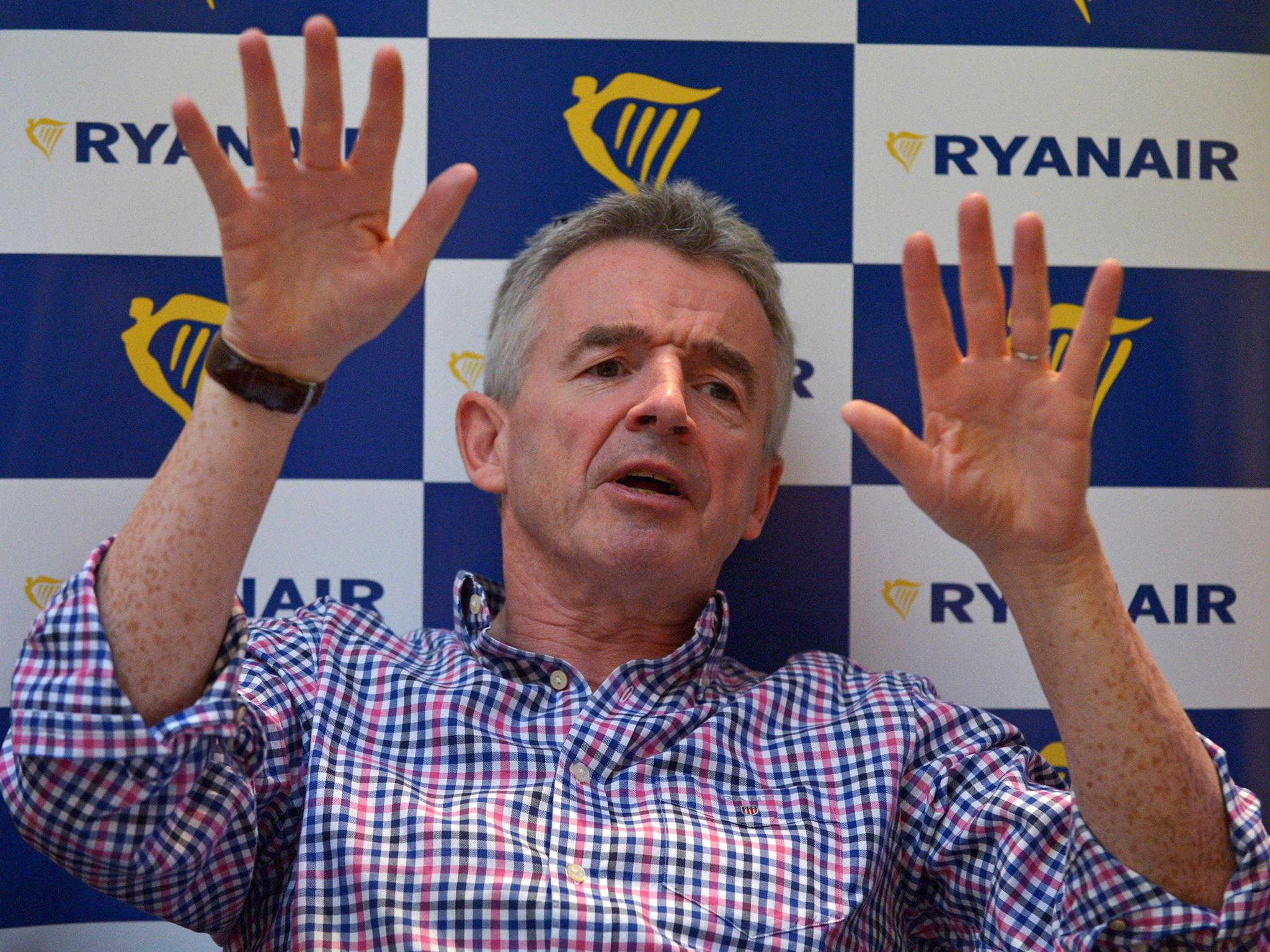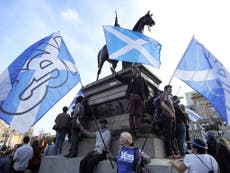Now Ryanair’s seen the light, there’s no excuse for anyone to insult their customers
There was a time when to seem to be efficient meant being rude

I was on a train this week, travelling from Yorkshire to London. A man sitting near me had the wrong ticket. His ticket was for the 5.10 train, but this was not the 5.10 train. It was the 3.12. All his colleagues, who were sitting with him, had tickets for the correct train, and had paid the same amount. They had the same tickets, but for some reason, his was printed with the wrong time. He pleaded with the ticket collector but it was no good. As we rattled past Selby, his wallet had to come out and he was obliged to cough up £155.
Now, mine is not to question the sense of ticket collectors and their duties, but this was plainly silly. He was not taking anyone else’s seat; the train was not crowded; he was on the same journey he had bought a regular ticket for, only two hours earlier. A bit of allowance might have been appropriate. But rules is rules, no matter how resentful and cross they make you, and how likely to put you off ever using that service again.
At last, there seems to be light at the end of Tunnel Draconian, from the unlikely source of Michael O’Leary, chief executive of budget airline Ryanair. Yes, that airline whose rules were so stern that they once had me emptying out an entire bag at Vienna airport and desperately trying to stuff its contents (trainers, pyjamas, a book, a bra) into my computer pouch, in order to escape the dreaded second carry-on bag fine. (I didn’t.) All of that is in the past: Ryanair has turned over a new leaf, stopped being hostile to its passengers and has begun being all nice and understanding. Result? Passenger numbers have gone up by 17 per cent.
“If I’d known being nicer to customers was going to work so well, I’d have done it ages ago,” commented O’Leary drily. Yes, this is the very same man who tried to boost profits by introducing “vertical seating” (on stools), a “fat tax” (for chubsters who couldn’t fit easily in one seat), and who even considered charging passengers for using the loo mid-flight. Aided by his canny marketing team, O’Leary has seen the light. Stop being the brand people “love to hate” and start being the brand people love.
So, two years ago Ryanair dumped its old “for better or worse” motto, which gave a sort of “suck it up, cheapskate” feel, and replaced it with “always getting better”, which at least had a bit of forward momentum. Allocated seating was brought in. Family discounts arrived. The dreaded second bag fine was abandoned, and an increased cabin allowance installed. Last month, Ryanair planes flew with 93 per cent of their seats filled, compared with 88 per cent at the same time last year. Who knew being nice would be so effective?
Of course, we all know about random gestures of kindness. The taxi driver who gave me a free ride to King’s Cross last week when I was in a panic about missing a train. The wallet you picked up and returned to its owner. But this is not about that, lovely though it is to help an old person across the road. It is about companies using a bit of common sense, being a bit flexible and having a bit of empathy too. Of course families want to sit together, and a bit of a discount might be a help in those pricey school holiday months. Of course people usually want two bags in the cabin; we are all umbilically linked to a computer.
There was a time when to seem to be efficient was simply all about mastering the act of being rude: shouting at underlings; barking information down the phone; issuing curt orders in an attempt to sound like a master of the universe. Being inflexible was what successful people did, since making allowances simply signalled weakness. You had to be like this in order to “get on”. Well, Michael O’Leary has just learned an important lesson; you don’t.
People don’t like rudeness, and in this crowded, over-stocked, brand-heavy world of choice, they will show you – by simply abandoning your company in favour of another one. It is why we’ve always loved John Lewis, whose staff on the customer helpline really do fulfil their job description. It’s why we dislike automated phone systems and why we rail against illogical, inflexible ticketing systems.
The “power of the market” is sometimes a rather dread notion; here, it seems it carries a welcome sense of humanity with it.



Join our commenting forum
Join thought-provoking conversations, follow other Independent readers and see their replies